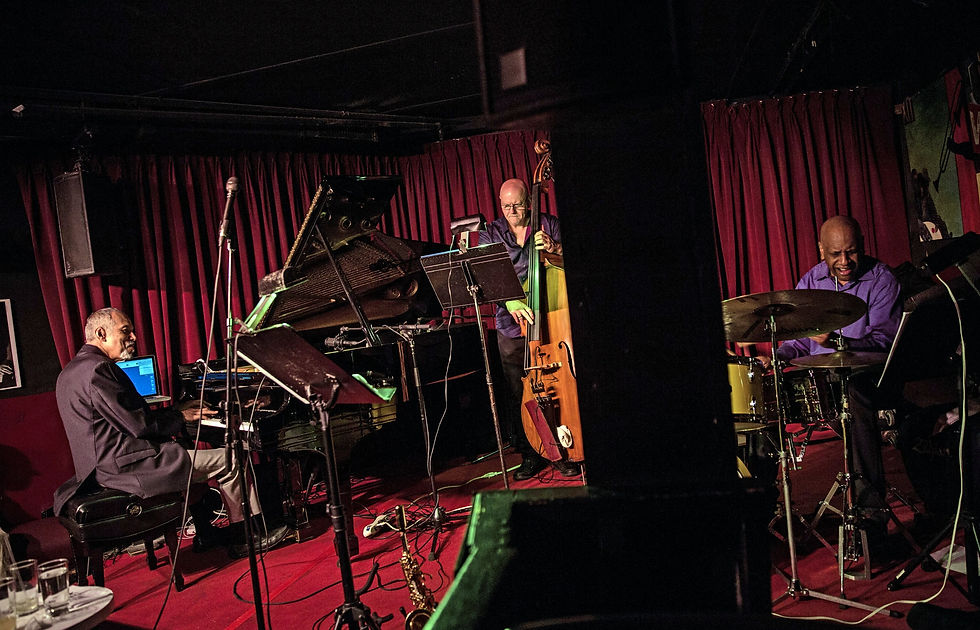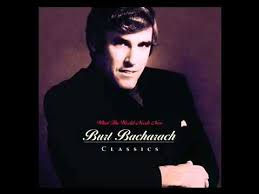LOVE .......in all it's facets
- Mitch Hampton

- Feb 1, 2021
- 7 min read
Updated: Feb 2, 2021

I remember that in the February of last year on this podcast me and my producer did a whole episode on the movie Valley Girl, a sort of Valentine's Day Show.
This February has me coming up with many possibilities of discussing further my personal life, a subject I broached in the most direct way thus far in my previous January post and which I discuss in the most open fashion in conversation this month with Stephanie Persephone.
I will return to my personal life in future posts and podcasts, especially now that my fear of this subject has lifted, but for now I will discuss love in a more philosophic sense. (I shouldn't even say "more" since I am always being more rather than less philosophical, but you know what I mean).
Every February 1st I have had the same ritual: I play Herbie Hancock's performance of "February Moment" from a solo piano concert of Herbie Hancock and Chick Corea in the year of 1977.
I have had the same double album from that year all of these decades which means that it was one of the few albums I received as a Christmas present in those, meaning that this would have been at the age of ten and I saved it and took it with me wherever I have been living.


I consider Herbie Hancock's improvisation of that particular composition so beautiful, certainly as great as anything else he has done in his long career.
And yet in all likelihood it was largely improvised, and a lot of what was played was not rigorously composed or planned out before sitting down at that piano.
It's blend of impressionism, especially Ravel, and soul and blues was the musical language and style I knew I loved the moment I heard it.
Looked at in this way, you could say I am expressing love for a particular piece of music.
And it was love at first hear!
A lot of this podcast is about this kind of love: love for individual work of art, and even love for whole genres and art mediums.
And just as William James spoke of The Varieties of Religious Experience, there are varieties of love.
Yes I am a pluralist on all subjects, including love.
I will explain what I mean now a little further. On Thursday December 19 of the past year of 2020 I learned that pianist/composer Stanley Cowell died at the age of 79.
Now like Herbie Hancock, here is a musician who has been an enormous influence on me on so many levels, but with the all important difference that I was a student of Stanley Cowell at New England Conservatory Of Music, even though I had been listening to him since childhood.
I got to spend an hour every week with him, hearing his wisdom which was never in short supply, and playing what I was working on for him.
For me this was one of the most extraordinary experiences of my life.
It was far more in fact than just piano and piano technique, since I do think that Cowell's ideas about music more generally are far deeper than many realized. I owe the greater part of who I am as a pianist and a musician to him and as far as his career is concerned I consider him to be one of the finest jazz pianists of his generation.
There are others, like Herbie Hancock, that we should rightly consider as great, but Stanley Cowell is a true peer of the giants of the piano.

He supervised my Senior recital concert in my undergraduate Bachelor Of Arts.
Under his direction I essentially did a newly composed rearrangement of George Gershwin's Concerto In F. I added a lot of things in there that did not exist in Gershwin's time, including rhythm and blues and funk (a lot of left hand work on these of course), some very dissonant passages and some very romantic ones. (You could say this was my very first attempt at "hard listening".)
Cowell gave me the utmost freedom in doing this so long as the end result was musical and expressed the full potential of the piano as an instrument. The first thing he told me in my first lesson was that the piano was an orchestra and should be treated accordingly - as a solo instrument. He told me that every time I came in there (during his lesson) to play I should "imagine that I had this all important gig and the rhythm section failed to show up and that I had to cover the whole structure of the song and their parts myself as if they were never even needed." He said you could always leave out some bass and some of the chord if I was playing with a rhythm section but that I still needed to be as competent covering their parts all on my own. In his phrase "it is always better to learn something even if you never choose to use it, than to not learn it all".
Or, on another occasion, "you can always take anything out but first you have to have something you can put in to begin with." We worked on solo piano which to me was the greatest joy since it really touched my deep love for the piano as an instrument as well as a sense of confidence I could gain from approaching the piano in that kind of way. And, interestingly enough, I was very busy at that time playing with some very large ensembles where I had to leave a lot of things out so the overall could sound the best! It was like a double musical life: ensemble playing and the team on one hand, and the possibilities of solo piano on the other.

Yet over time I learned that Cowell had been right; these were two sides of the same coin like the Suzuki talks in Zen Mind, Beginner's Mind: "not one and not two."
Of course, Stanley Cowell had heard Art Tatum play on his family piano when Cowell was growing up in the fifties Imagine that?! (Doubtless one of the many unheralded virtues of being from Toledo, Ohio, also home to Art Tatum!)
In that sense I feel I was experiencing a direct spiritual link to Art Tatum by studying with Cowell for that year and a half, in all truth, one of the happiest years in my life

.
I sent him my Hard Listening album and he called to tell me he was "proud of me."
This was the last time I had met him.

I think one of the great problems, maybe the great one, in our culture overall is a deficit of love.
Now I am aware that might be a really presumptuous thing to say. Who am I to say that? Hasn't it been said too much? Well, yes, in a way, I suppose it has. But indulge me just a little. By deficit I do not mean insufficient love where love is ordinarily called for; I think many people might be doing just fine with that, though again I can't know for sure.
I mean taking seriously the more ancient view that love is potentially everywhere or at least a foundation for life itself.
The deficit is that we only recognize it in certain proscribed and narrow areas, say the romantic or sexual realms or, as is almost always the case, in the family system, and by family I mean blood relations and tribe alone, whether nuclear or extended. I have no doubt that this narrowness is more than sufficient for a great many people, maybe even the majority of the world's population. i have no wish to give advice or proscribe anything. I am thinking and wondering out loud. I can't speak for people who claim that family life is the most important thing for them but I can guess that is the case.
My question is, is there a place for anything else? I said I had wanted to get more personal.
Returning again to 1989, the same year of my musical triumph of my Bachelor of Arts recital my experience with Stanley Cowell, if my musical life felt triumphant, my romantic life was far less triumphant. The woman I was dating was a classical woodwind player and I had been seeing her for most of that same year as my studies with Cowell, and about whom I was serious, so serious that I carried around this photo of her in my wallet, and took her on a date to hear Shirley Horne which felt like a big deal.

One day she wrote me a letter on some leftover staff paper saying that she has something really important to tell me and that is would be difficult for me. But when she met me for this appointment she was not alone; she had with her with this man who I had never met, with a rather bad case of acne for someone 20 years of age, and she proceeded to tell me that this man was who she was serious about and had plans to marry.
This was, to say the least, a shock as well as a most direct and blunt way for her to break up with me, by bringing this new man in her life to meet me in person as her future husband! Now they sat in the same woodwind section of the orchestra, so I know they had commonality, a shared love of being section players? Clearly she had this other life about which I was profoundly ignorant. Who is to say the depth of that connection and its relevance for her? Likewise, who is to say the effect of losing a relationship about which I had such positive feelings?
I believe this miscommunication and mutual incomprehension is one of the great themes in human life and the arts are largely an attempt to understand such things. It seemed so odd that one area of my life could go so well, and this other not so well, almost in inverse proportion. It took me years to process that experience and in some small way I am still learning more about that one. Yet all of these things - a musician you only idolized from affair that you get to actually study with because your school decided to hire him at the last minute, sexual partners that get more serious for one but not the other, breakups and broken hearts and surprise marriages, and vinyl records you are compelled to listen to once a year for decades on end - are certainly varieties of love.
I don't say they are are all one and unified; others are more sure of that than am I. The differences seem to be too great.
But we use the word love to draw out the connections between such disparate things.
I have far more to say about all of this, but I will do the thing that I always hate doing but know must be done and say goodbye for now.


Additional Links to Stanley Cowell's Works
Stanley Cowell playing Duke Ellington: https://www.youtube.com/watch?v=zxYyOzTmtHI Stanley Cowell playing his own music: https://www.youtube.com/watch?v=cuHIiU-sWtM













Comments